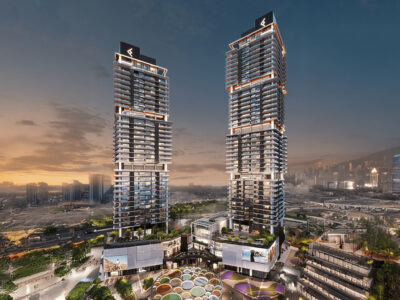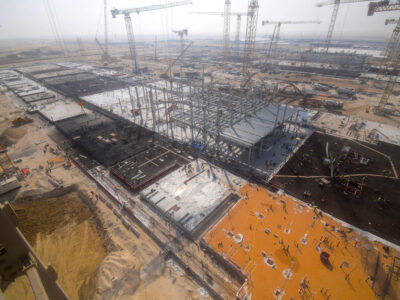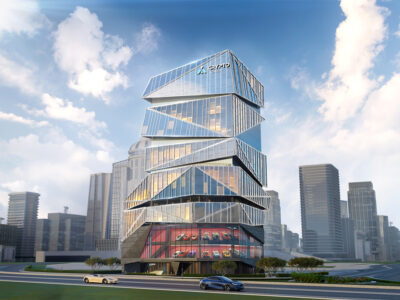A Pennsylvania courtroom will determine whether US metals giant Alcoa defrauded Aluminum Bahrain to the tune of over US$1bn, and with the knowledge of senior company officials.
For thirty years, Aluminium Bahrain and Alcoa, Inc were the closest of business partners with trade between the two corporate giants worth hundreds of millions of dollars a year.
Now that relationship is under threat as lawyers from both sides face each other across a Pennsylvania courtroom to hear allegations of a US$1bn fraud that spanned two decades. Alcoa also faces separate claims against a senior official charged with the negotiation of a free trade agreement between the US and Bahrain.
Alba, which is majority-owned by the Bahraini government, is seeking in excess of US$1bn including punitive damages from Alcoa Inc, Alcoa World Alumina LLC and two individual defendants William Rice and Victor Dahdaleh, for what is described in court documents obtained by Arabian Business as a “massive, outrageous fraud.”
Alcoa is the world’s third largest aluminium company with 97,000 employees in 34 countries. Alba claims that through intermediaries, Alcoa systematically overcharged it for supplying alumina, an essential ingredient in the production of aluminium that comprises 80% of Alba’s raw material costs.
In order to coerce Alba into buying the alumina at an inflated price, government officials in Bahrain were bribed to facilitate the process, according to a complaint lodged in a US district court.
The dispute dates back to 1990 when Alba and Alcoa Australia entered into an initial 10-year deal covering the supply of alumina, that was extended three times, eventually running to December 2004.
Alba claims that under this original agreement, it made payments to companies controlled by Victor Dahdaleh, a Canadian agent acting on behalf of Alcoa. The companies served no other purpose than to channel bribes as part of the scheme to defraud Alba, the company claims.
Under the original 1990 contract, Alba paid a fixed rate for about 60% of its supply of alumina from Alcoa while the remaining 40% was negotiated. These negotiated payments went to a company controlled by Dahdaleh, according to the court documents.
The complaint also contains specific allegations relating to William Rice, vice president of marketing of Alcoa World Alumina who was also a senior official involved in the US-Bahrain free trade negotiations.
Alba claims Rice pressured a Bahraini government official to sell 26% of Alba to Alcoa in September 2003 in exchange for one million tonnes of alumina per year in perpetuity at a cost plus management fee. Rice and Dahdaleh represented Alcoa throughout the negotiations, according to the court documents.
Alba also claims that both men were in contact with officers of Alba and the Government of Bahrain who were “recipients” of the defendants’ bribes during the course of the negotiations.
The company claims that one Alba officer who had been receiving bribes, objected to including a term that would benefit Alba by allowing the company to withdraw from the transaction. They allege that Rice “suggested” that if the deal was not approved, he might not be able to support the adoption of the free trade agreement between the US and Bahrain. Last week, Rice did not answer Arabian Business’ telephone calls to his home in Knoxville, Tennessee.
Between April 2004 and May 2005, a series of meetings were held in London and Bahrain involving Bahraini government officials and Alcoa representatives in an effort to conclude the sale which Alba says “dramatically undervalued” the Bahraini government’s shares in Alba.
“Alcoa valued the shares at US$600m while the true value was really closer to US$1bn,” the complaint alleges. Alba claims that the funneling of hundreds of millions of dollars in payments into shell companies began about 15 years ago, although it says that the full extent of the scheme only came to light last year.
“This is an important case for our client and the people of Bahrain,” said Mark MacDougall of Akin, Gump, Strauss, Hauer and Feld, who represents Alba in the litigation.
“Our client has faith in the US judicial system and is confident that this case will be fully and fairly adjudicated in the federal courts,” he told Arabian Busienss in an e-mailed statement last week.
Alcoa spokesman Kevin Lowery told Arabian Business: “We have reviewed the suit and as of yet we have not found anything where we were not consistent with living our values.”
Before long, a jury will decide which side to believe.
The defendant
Alcoa is a top producer and manufacturer of primary aluminium that supplies its products to companies in a myriad of industries including aerospace, automotive, packaging, building and construction, commercial transportation and industrial markets around the world.
The corporation has offices in 34 countries with its main headquarters situated in Pittsburgh, Pennsylvania. There are approximately 97,000 people employed at the company. Alcoa is listed on the New York Stock Exchange and its competitors in the aluminium industry include Hydra Aluminium AS and RUSAL, both of which are privately held institutions. Alcoa has been supplying the Bahraini company Alba with alumina for the past 30 years.
The plaintiff
Since May 2005, Alba has operated the largest modern aluminium smelter in the world.
Alba is located in Manama, Bahrain and has been in operation since 1971. It has 3,000 employees and plans to increase current production of about 1.2 million tonnes of aluminium to as much as 3.4 million tonnes in five years. Alba is 77% owned by the Bahraini government’s Mumtalakat Holding Company while Saudi Basic Industries Corporation holds 20% with the remainder owned by German-based Breton Investments.
Alba uses its access to cheap gas to manufacture aluminium at a lower cost than rivals from outside the region. A five-year plan is set for the company to become the world’s largest producer of aluminium.
The US and Bahrain signed a free trade agreement in May 2004, the first with an Arab Gulf state.
William Rice, the former vice president of marketing of Alcoa World Alumina was co-chairman of the US-Bahrain Free Trade Agreement Coalition.
“The progress made by the officials from both countries over the course of the negotiations will set an example for future FTA talks,” said Rice in a press statement released by the coalition following the conclusion of negotiations in May 2004.
The agreement covered the duty-free movement in non-textile goods, agricultural exports and protected intellectual property rights. Two-way trade between the two countries was valued at about US$900m when the deal was signed.
Implementing legislation for the agreement passed the US House of Representatives and the Senate in December 2005 and was signed by President Bush in January 2006.







